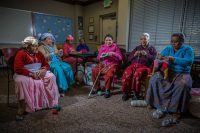Group therapy and education and support sessions are used within health care across a range of disciplines such as chronic disease self-management and psychotherapy interventions. However, there are barriers that constrain group attendance, such as mobility, time, and distance. Using videoconferencing may overcome known barriers and improve the accessibility of group-based interventions. The aim of […]

